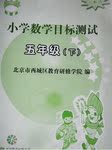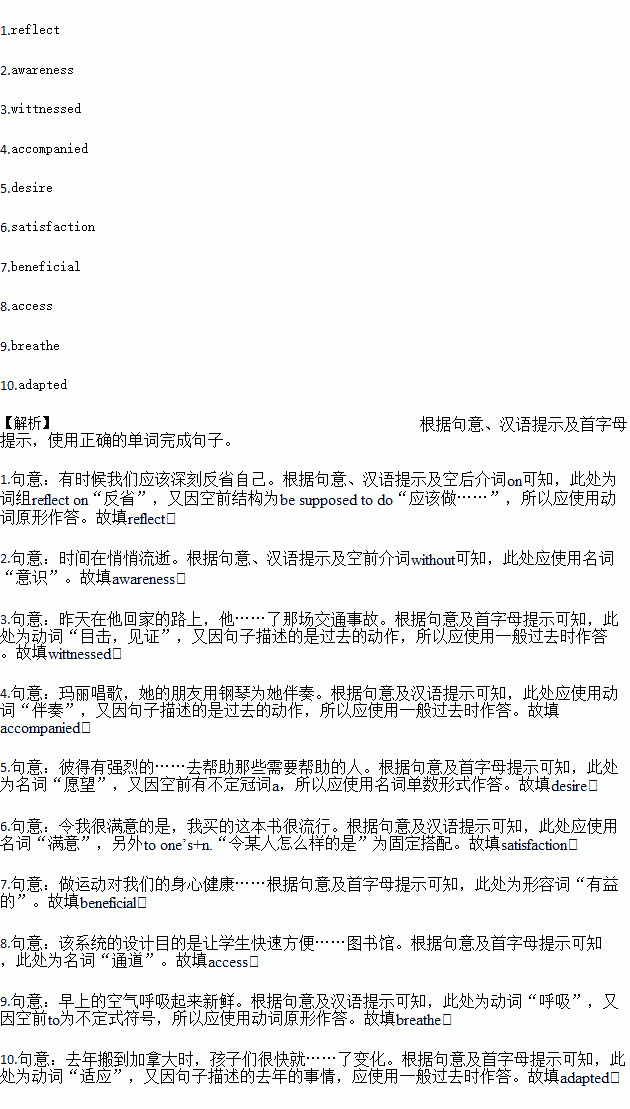题目内容
1.Sometimes we are supposed to________(思考)on ourselves deeply.
2.Time Goes by fast without________(意识).
3.He w________the traffic accident on his way back home yesterday.
4.Mary sang and her friend________(伴奏)her on the piano.
5.Peter has a strong d________to help those in need.
6.To my great________(满意),the book I bought is very popular.
7.Doing sports is b________to our health physically and mentally.
8.The system has been designed to give students quick and easy a________to the library.
9.The air in the morning is fresh to________.(呼吸)
10.When moving to Canada,the children a________to the changes very soon last year.
练习册系列答案
 目标测试系列答案
目标测试系列答案
相关题目

